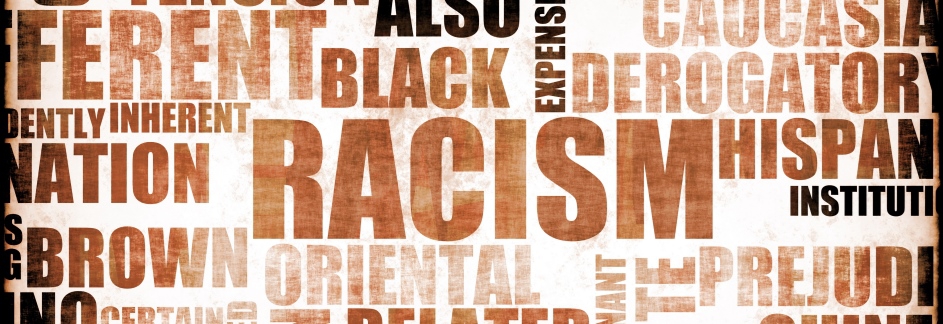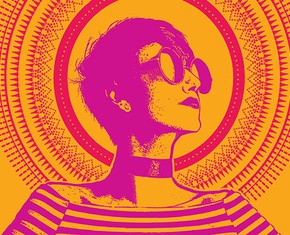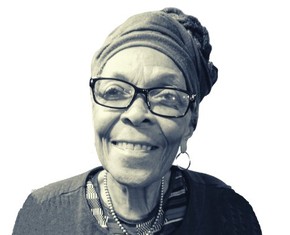The views expressed in our content reflect individual perspectives and do not represent the authoritative views of the Baha'i Faith.
… there is need of a superior power to overcome human prejudices, a power which nothing in the world of mankind can withstand and which will overshadow the effect of all other forces at work in human conditions. That irresistible power is the love of God. It is my hope and prayer that it may destroy the prejudice of this one point of distinction between you and unite you all permanently under its hallowed protection. Baha’u’llah has proclaimed the oneness of the world of humanity. He has caused various nations and divergent creeds to unite. He has declared that difference of race and color is like the variegated beauty of flowers in a garden. If you enter a garden, you will see yellow, white, blue, red flowers in profusion and beauty—each radiant within itself and although different from the others, lending its own charm to them. Racial difference in the human kingdom is similar. If all the flowers in a garden were of the same color, the effect would be monotonous and wearying to the eye.
Therefore, Baha’u’llah hath said that the various races of humankind lend a composite harmony and beauty of color to the whole. Let all associate, therefore, in this great human garden even as flowers grow and blend together side by side without discord or disagreement between them.
According to the words of the Old Testament God has said, “Let us make man in our image, after our likeness.” This indicates that man is of the image and likeness of God—that is to say, the perfections of God, the divine virtues, are reflected or revealed in the human reality. Just as the light and effulgence of the sun when cast upon a polished mirror are reflected fully, gloriously, so, likewise, the qualities and attributes of Divinity are radiated from the depths of a pure human heart. This is an evidence that man is the most noble of God’s creatures.
Each kingdom of creation is endowed with its necessary complement of attributes and powers. The mineral possesses inherent virtues of its own kingdom in the scale of existence. The vegetable possesses the qualities of the mineral plus an augmentative virtue, or power of growth. The animal is endowed with the virtues of both the mineral and vegetable plane plus the power of intellect. The human kingdom is replete with the perfections of all the kingdoms below it with the addition of powers peculiar to man alone. Man is, therefore, superior to all the creatures below him, the loftiest and most glorious being of creation. Man is the microcosm; and the infinite universe, the macrocosm. The mysteries of the greater world, or macrocosm, are expressed or revealed in the lesser world, the microcosm. The tree, so to speak, is the greater world, and the seed in its relation to the tree is the lesser world. But the whole of the great tree is potentially latent and hidden in the little seed. When this seed is planted and cultivated, the tree is revealed. Likewise, the greater world, the macrocosm, is latent and miniatured in the lesser world, or microcosm, of man. This constitutes the universality or perfection of virtues potential in mankind. Therefore, it is said that man has been created in the image and likeness of God.
Abdu’l-Baha (Promulgation of Universal Peace pp 68-70)
You May Also Like
Comments

















I suspect to imagine a world without prejudice and racism implies each individual examine her/his heart, soul and mind and explore one's emotional attachments on and surrounding both concepts to determined the degree of our "obsession". This condition is not necessarily one of choice and it does not affect one group to the exclusion of others. So-called "people of color" or "visible minorities, terms used respectively in the United States and in Canada, are also affected by racism and prejudice but in different ways. They "...are affected differently by the disease of racism than Whites [or other socially, economically, etc, privileged groups]. Most people of color suffer, in varying degrees, from internalized racism. The characteristics of internalized racism can be seen in a lack of confidence, low self-esteem, and not liking oneself because of one's skin-color [or other characteristics that are socially demeaning]. These characteristics stem from an inherent sense of inferiority [and for the power group an inherent sense of superiority] that has nothing to do with one's native intelligence or creative capacity and ability. Those who suffer from internalized racism are victims of oppression." (Ref. "Healing Racism", p. 106)
There are many steps one may take to ascertain one's on level of obsession or internalized racism. I believe I found one in an extended letter Shoghi Effendi wrote to the American Baha'i Community titled "The Advent of Divine Justice". Shoghi Effendi provides what I consider a "template" of immense practicality. He lays it out thusly:
" A tremendous effort is required by both races if their outlook, their manners, and conduct are to reflect, in this darkened age, the spirit and teachings of the Faith of Bahá’u’lláh. Casting away once and for all the fallacious doctrine of racial superiority, with all its attendant evils, confusion, and miseries, and welcoming and encouraging the intermixture 40 of races, and tearing down the barriers that now divide them, they should each endeavor, day and night, to fulfill their particular responsibilities in the common task which so urgently faces them. Let them, while each is attempting to contribute its share to the solution of this perplexing problem, call to mind the warnings of ‘Abdu’l-Bahá, and visualize, while there is yet time, the dire consequences that must follow if this challenging and unhappy situation that faces the entire American nation is not definitely remedied.
"Let the white make a supreme effort in their resolve to contribute their share to the solution of this problem, to abandon once for all their usually inherent and at times subconscious sense of superiority, to correct their tendency towards revealing a patronizing attitude towards the members of the other race, to persuade them through their intimate, spontaneous and informal association with them of the genuineness of their friendship and the sincerity of their intentions, and to master their impatience of any lack of responsiveness on the part of a people who have received, for so long a period, such grievous and slow-healing wounds. Let the Negroes, through a corresponding effort on their part, show by every means in their power the warmth of their response, their readiness to forget the past, and their ability to wipe out every trace of suspicion that may still linger in their hearts and minds. Let neither think that the solution of so vast a problem is a matter that exclusively concerns the other. Let neither think that such a problem can either easily or immediately be resolved. Let neither think that they can wait confidently for the solution of this problem until the initiative has been taken, and the favorable circumstances created, by agencies that stand outside the orbit of their Faith. Let neither think that anything short of genuine love, extreme patience, true humility, consummate tact, sound initiative, mature wisdom, and deliberate, persistent, and prayerful effort, can succeed in blotting out the stain which this patent evil has left on the fair name of their common country. Let them rather believe, and be firmly convinced, 41 that on their mutual understanding, their amity, and sustained cooperation, must depend, more than on any other force or organization operating outside the circle of their Faith, the deflection of that dangerous course so greatly feared by ‘Abdu’l-Bahá, and the materialization of the hopes He cherished for their joint contribution to the fulfillment of that country’s glorious destiny." (pages 40-41)
Each "Let the" phrase is followed by the action individuals are well advised to take. Progress along this path may clear the imagine and come up with wonderfully creative images of what it could be like to live in a world without racism or prejudice.